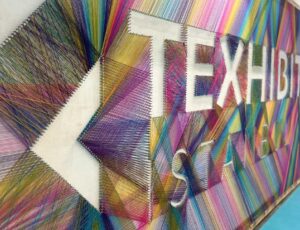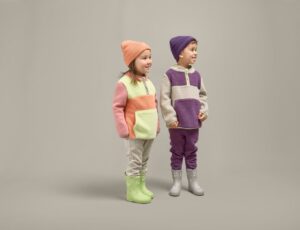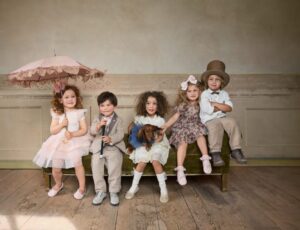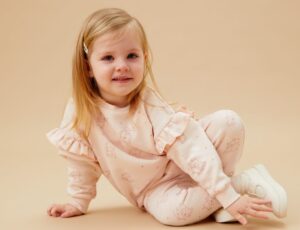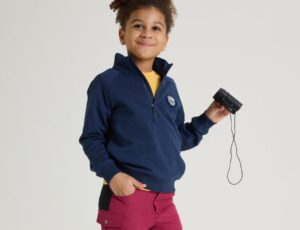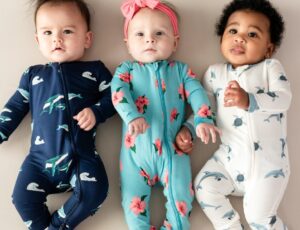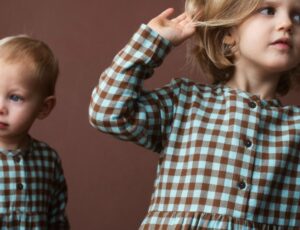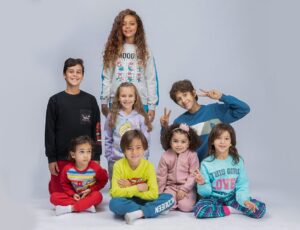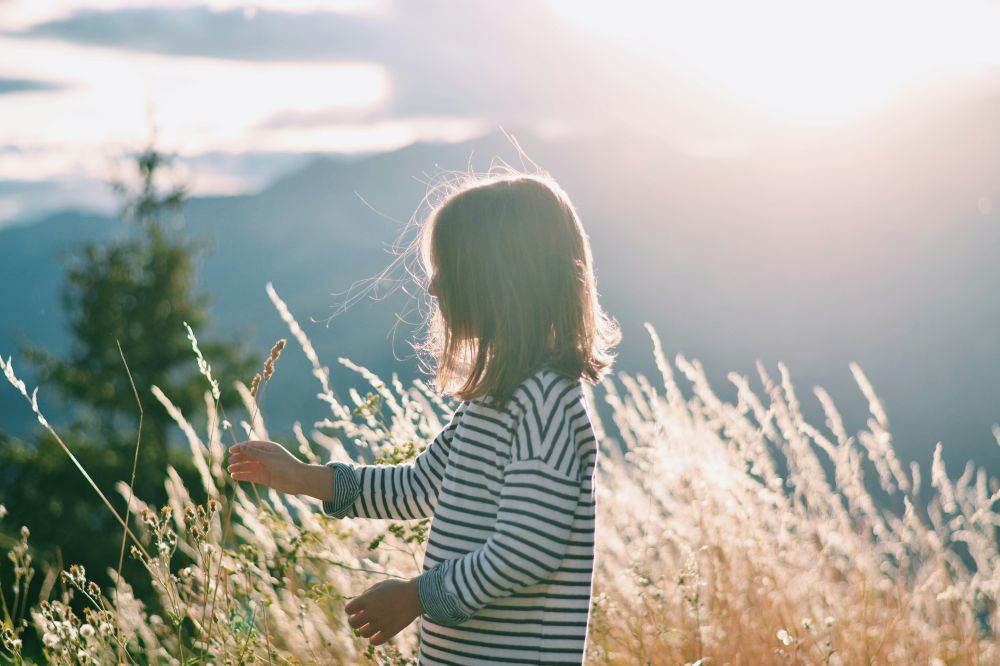
A guide to support, inform and inspire childrenswear businesses on their sustainability journeys.
A: AMBIO-N (ProcureCircular)
ProcureCircular is a leading climate-tech organisation made up of a team of passionate technologists and consultants committed to driving sustainability and circularity within the textile industry. They work with manufacturers to identify surplus cloth and yarn that would otherwise go to landfill or through carbon-intensive recycling processes, and find buyers for those materials. For brands and designers, purchasing surplus materials reduces the need to buy those materials on the primary market and reduces carbon as well as water and land use.
Having worked closely with fashion brands and manufacturers for three years to source high-quality materials that are surplus within other supply chains, ProcureCircular is now launching a digital platform to create a dynamic ecosystem for the exchange of surplus materials from across the supply chain. The platform will enable ProcureCircular to drive environmental impact across the textiles industry at scale and track the improved environmental impact of every material traded. Extensive research conducted on materials from across the globe enables detailed calculations about each transaction based on material type, quantity and country of origin. Reports are provided to suppliers on material diverted from landfill, and for buyers on reduced water consumption, land use and carbon footprint compared to buying new. Buying surplus materials doesn’t mean any reduction in quality. ProcureCircular focuses on sourcing the highest-grade wool, cotton, linen, silk and other natural materials.
ProcureCircular’s commitment to creating a brighter future for the next generation is central to its mission. Collaborations with childrenswear brands such as Maisie + Moo have delivered 90% reductions in water usage within its range. ProcureCircular is now looking for brands and manufacturers that want to join in the environmental mission to create a more sustainable textile industry through circularity.
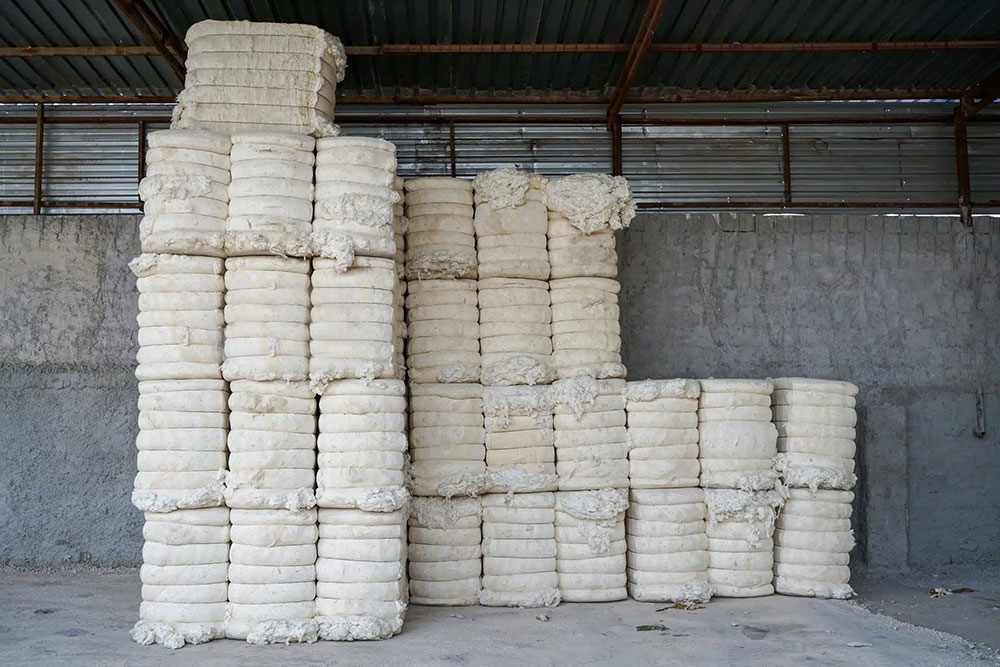
B: Better Cotton
Better Cotton is the world’s largest cotton sustainability initiative. Its mission: to help cotton communities survive and thrive while protecting and restoring the environment. In challenging times, Better Cotton is meeting the challenge head-on. In the 2021-22 cotton season, through its network of field-level partners, 22% of global cotton production was Better Cotton grown in 22 countries around the world. Its programmes reached 2.8 million farmers, which included more than 2.2 million Better Cotton licensed farmers. Over one-fifth of the world’s cotton is now grown under the Better Cotton Standard. Better Cotton has united the industry’s stakeholders behind its efforts, from ginners and spinners to brand owners, civil society organisations and governments, with over 2,500 companies in membership at the end of 2022. Everyone who cares about cotton and its sustainable future can now be part of something better.
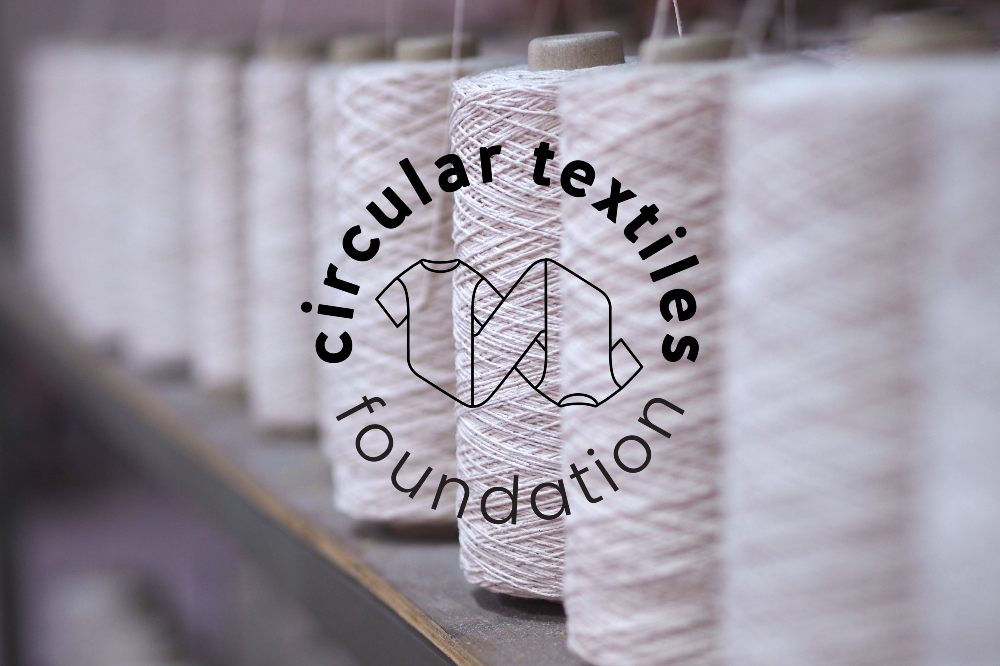
C: Circular Textiles Foundation
The Circular Textiles Foundation (CTF) is an innovation design agency and expert at designing for recyclability and closing the loop in circular fashion. It works with brands, manufacturers and fibre-to-fibre recyclers to ensure clothing and other textiles are designed ‘with the end in mind’ – to be recycled within a circular economy and made into new textiles at the end of use.
CTF works in a practical way with fashion, textiles and homeware brands to educate and embed circular design principles into how their products are designed and manufactured. It collaborates with clients to help them navigate the intricacies of circularity, from material choice and product design and legislative obligations, and the impact to innovative business models and end-of-life solutions. CTF also provides business innovation consultancy, training and certification to brands working towards a circular model. Working with clients to review and revise the design of their garments and products, it helps ensure, where possible, that circularity is built into the design going forward. It helps clients understand what recyclers are out there and what they can recycle, how to calculate the carbon cost of design, and how to reduce costs through circularity. It also helps clients see the exciting potential of designing for circularity by providing the tools and guidance needed to achieve circularity in their production process without sacrificing any design ideals.
CTF’s client portfolio includes work with a wide range of brands, from smaller, pioneering sustainability fashion brands to larger fashion and homeware brands that are committing to sustainability-focused initiatives to embed circularity into their design practices.
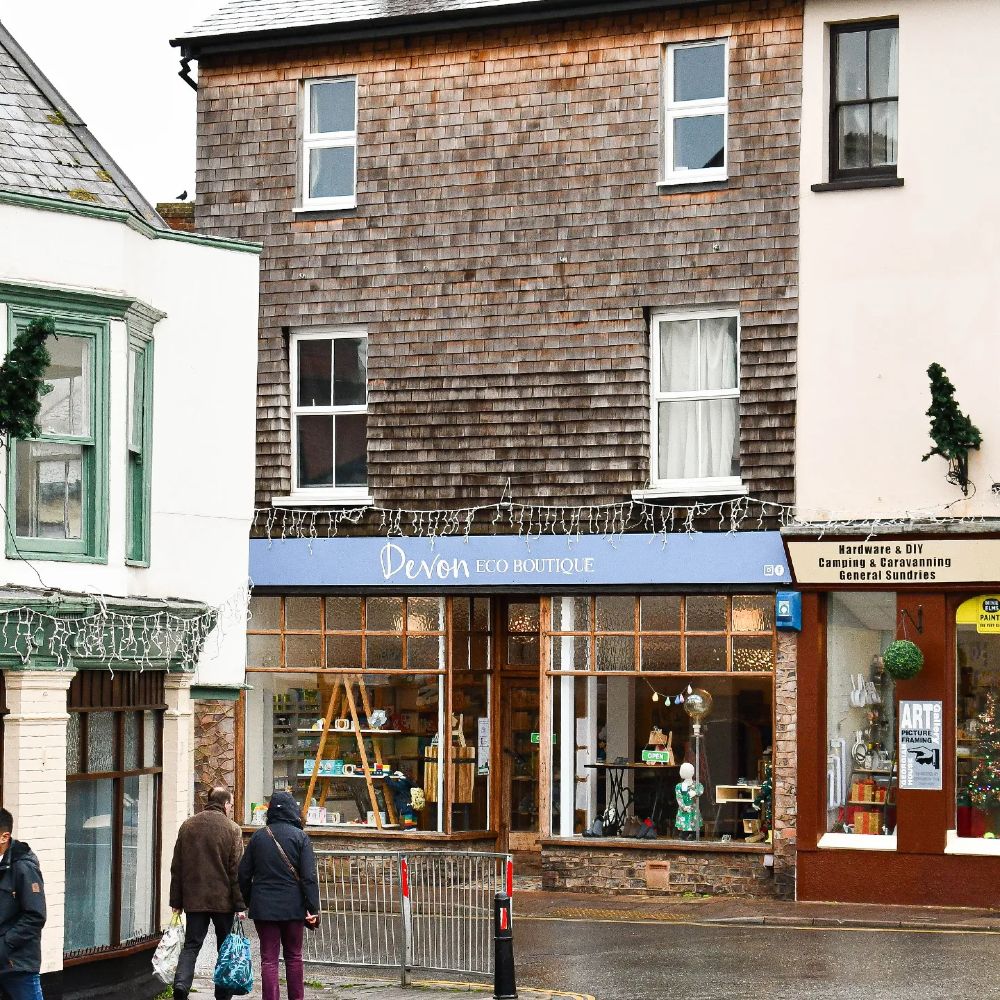
D: Devon Eco Boutique
Located in Ottery St Mary in Devon and also available online, Devon Eco Boutique is a lifestyle store that champions sustainability. Supporting small businesses, it offers eco-friendly products for babies, kids, grown-ups and homes. The boutique aims to empower conscious choices for a greener future with everyday essentials for babies and toddlers, organic fashion, pre-loved fashion, organic skincare, refill options, stationery, jewellery, home decor and fashion accessories.
An in-store exchange scheme enables customers to exchange their outgrown or unwanted children’s clothing, accessories, books and toys for store credit. This not only encourages recycling but enables customers to get more for their money, giving them a little bit towards the next size, whilst also allowing Devon Eco Boutique to resell second-hand clothing at affordable prices. The business runs various in-store events too, from hand-stamping your own gift wrap that can be fully recycled to clothing swap events for grown-ups, enabling customers to swap clothing and accessories whilst supporting the store’s charity of choice. The boutique also has a bra bank in-store to recycle old bras in collaboration with Against Breast Cancer to help the charity raise funds.
E: Ethical Trading Initiative
Ethical Trading Initiative (ETI) is a leading membership organisation focused on addressing human rights impacts in supply chains. By working with companies, trade unions and NGOs, it is uniquely placed to tackle the challenges faced by workers around the world.
ETI offers support to develop a company’s human rights strategy. Workers face serious and complex problems worldwide, and ETI has specialist thematic and geographical expertise that can support companies in developing their supply chain approach. It has a framework aligned with the UN Guiding Principles that enables companies to assess where they are and what they need to do when it comes to human rights. ETI has been working with businesses for over 25 years and has many members with advanced human rights programmes. At ETI, you can learn from others and adopt tried and tested approaches to human rights within your business. As owners of the ETI Base Code, its expertise and resources align with this internationally recognised code. Increasingly workers are impacted by global crises, from conflict and climate change to global pandemics. ETI supports businesses to react and protect workers in times of crisis and do this collaboratively with peers and suppliers. It leads initiatives to address specific issues impacting workers and members in key geographies and helps make supply chains more resilient. ETI works with over 100 company members, from fashion and merchandise to food and beverage, and is an ideal place for any business looking to address human rights risks in its supply chain.
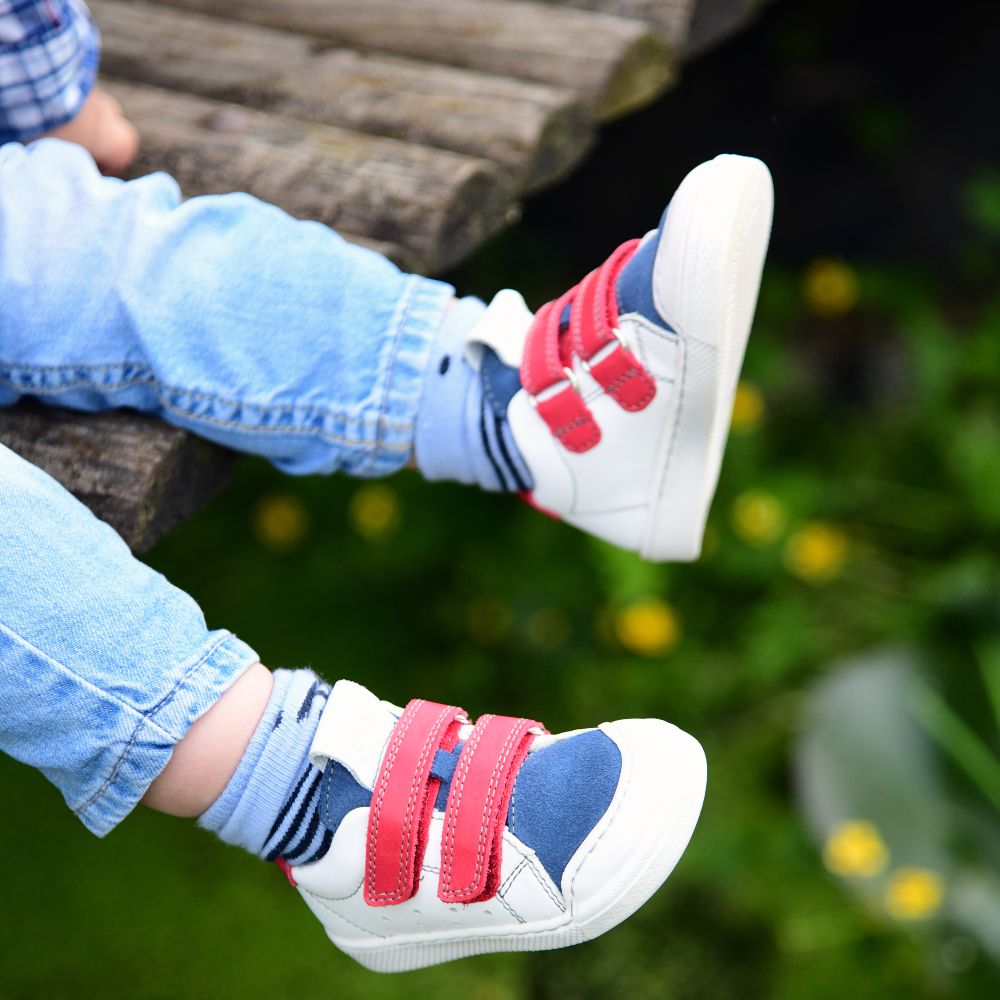
F: Froddo
This year marks the 25th anniversary of Froddo, a children’s footwear brand whose commitment to social responsibility and environmental preservation is reflected in everything it does. From its headquarters in Croatia the company produces one million pairs of shoes annually, with ISO certifications confirming its commitment to high standards of responsible business practices. Froddo strives to minimise waste and reduce energy consumption in its production processes through careful production planning and the application of efficient manufacturing techniques. In terms of distribution, it uses recycled packaging and minimises promotional and sales materials accompanying the product. The company has also initiated the development of a Sustainability Strategy and Carbon Footprint Analysis. Through the strategy, it will assess the impact of its operations on the environment, society and governance, identifying opportunities for improvement and innovation. This is alongside setting high ESG goals related to the environment, social aspects, and company management.
When it comes to its products, Froddo is committed to ecological responsibility through the practice of eco-design. Its designers carefully consider the entire product life cycle, from raw materials to the final disposal, to ensure the shoes are as environmentally friendly as possible. As well as high-quality materials such as natural leather with the Leather Working Group certification and textile materials with the GOTS certification, Froddo continues to explore the possibilities of recycled materials to reduce waste and resource consumption. For example, the Rosario Recycled (pictured above) has a white leather upper made from recycled leather certified by the Global Recycled Standard.
G: Good Business Charter
The Good Business Charter (GBC) is an initiative founded by retailer Julian Richer to address the need for clear indicators of responsible business practices. Recognising that consumers care about shopping with socially responsible businesses but often lack information on which businesses are truly committed to ethical practices, the GBC serves as a signpost for organisations that are actively prioritising people and the planet.
The GBC offers a set of 10 components that businesses can commit to, serving as a clear differentiator between those organisations that are genuinely dedicated to ethical conduct and those that are not. By adhering to these components, businesses demonstrate a commitment to practical actions that prioritize both people and the planet. The 10 components are: Real Living Wage; Fairer hours and contracts; Employee well-being; Employee representation; Equality, diversity and inclusion; Environmental responsibility; Paying fair tax; Commitment to customers; Ethical sourcing, and Prompt payment. Click here to find out more about how the GBC supports businesses on their sustainable and ethical journeys and to apply for accreditation.
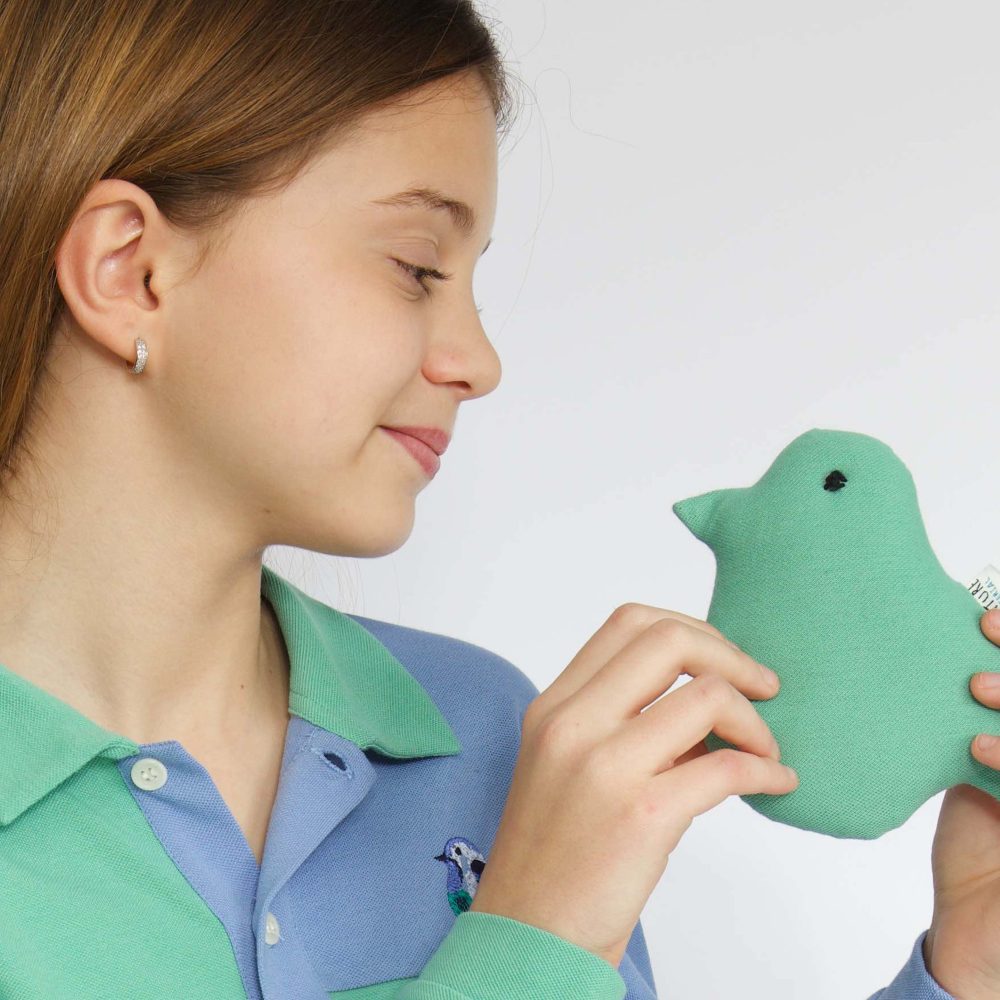
H: Helps Nature
Helps Nature is an Italian brand committed to exclusively using organic and certified materials to create sustainable children’s clothing that respects the environment without sacrificing quality. Its approach involves rethinking fabric lifecycles by viewing them as valuable resources rather than waste. By embracing the concept of zero waste, the brand puts pieces together as patchwork to give them a new life. To further lower impact, Helps Nature focuses on a small collection comprising a few long-lasting pieces that can be handed down for generations. The brand’s logo is a little chick with the earth in its tummy – an animal chosen because it is one of the many victims of intensive farming – with Helps Nature donating part of its profits to associations that work to save these animals.
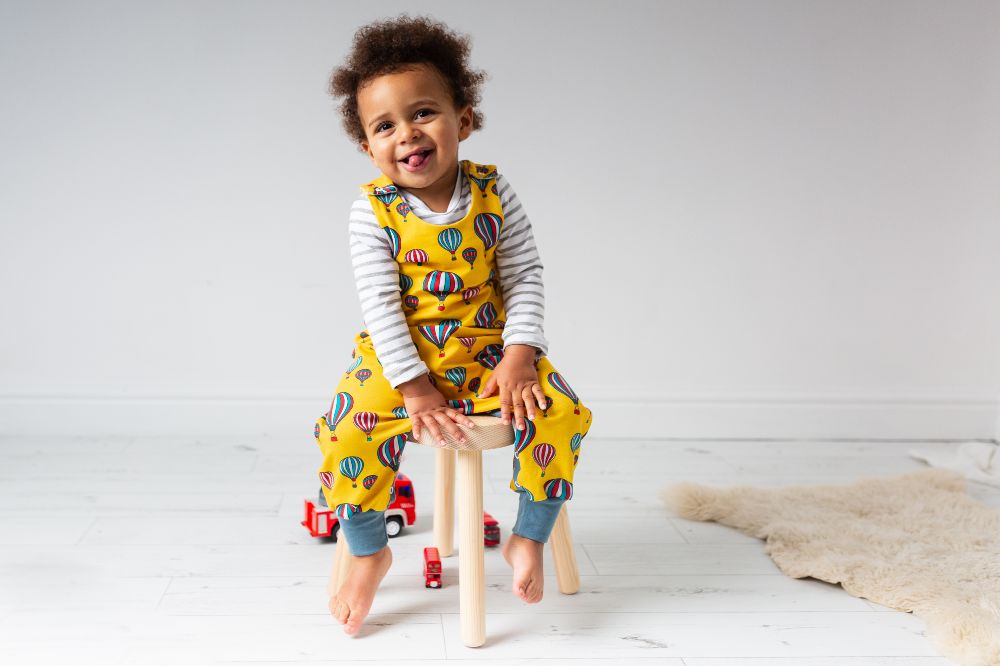
I: ILO
ILO is dedicated to producing exceptional garments while minimizing its environmental footprint. Its mission is to provide eco-conscious families with meticulously crafted, unisex clothing that harmonizes comfort, quality and timeless design. Through its commitment to sustainability, it aims to nurture a brighter future for both children and the planet, inspiring mindful consumption and a brighter, greener tomorrow.
The brand’s mission is guided by three core values. Firstly, supporting GOTS certification for cotton growers, mills and printers. This commitment supports sustainable cotton cultivation and processing, foregoing harmful pesticides and practices while ensuring fair labour conditions throughout the production chain. Also, embracing local production and ethical manufacturing. By manufacturing locally, ILO can efficiently respond to demand, avoid overproduction and reduce waste. This approach also grants it full control over the working conditions in which its garments are created. Finally, crafting enduring products for future generations. ILO’s gender-neutral designs are made with longevity in mind, using the best quality materials and time-tested techniques. This ensures garments can withstand years of use, minimizing their environmental impact, and allowing them to be passed on to new owners. ILO is also currently working towards B Corp Certification.
J: Joining the B Corp movement
From supply chain and input materials to charitable giving and employee benefits, B Corp Certification verifies that a business is meeting high standards of social and environmental performance, transparency and accountability. Unlike other certifications, B Lab’s B Impact Assessment is unique in that it measures a company’s social and environmental impact holistically, considering various stakeholders. As leaders in the movement for economic systems change, B Corps reap notable benefits: they build trust with consumers, communities, and suppliers; attract and retain employees; and draw mission-aligned investors. B Corp businesses are always looking for new ways to improve their impact, because getting certified as a B Corp isn’t the end of the road, it’s just the beginning. Certified B Corps in the childrenswear sector include GrowGrows, MINI A TURE, Muddy Puddles and Töastie.
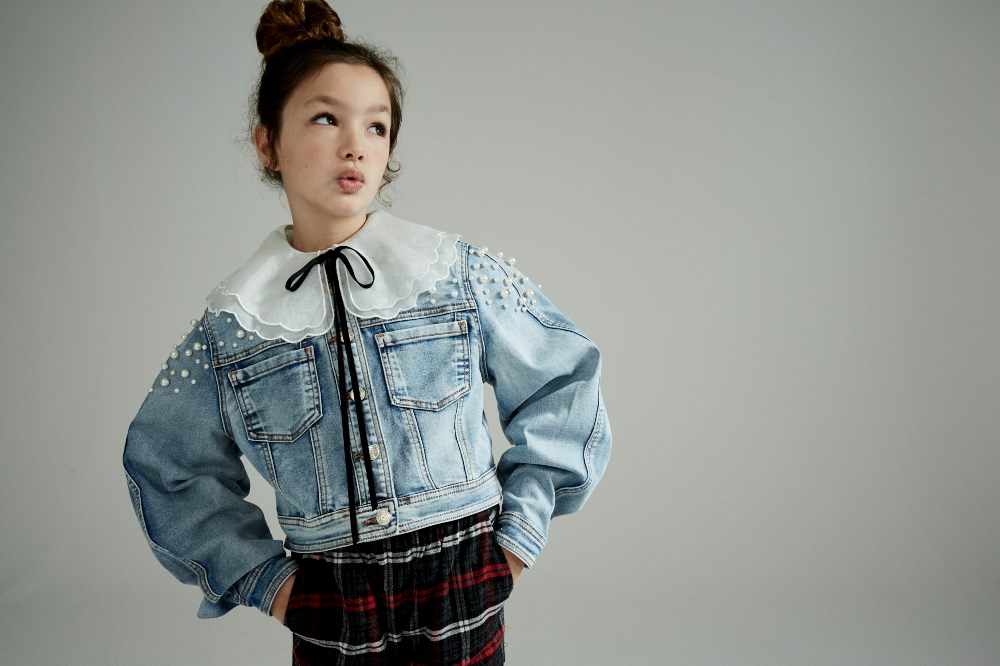
K: Kidswear Collective
Kidswear Collective is an online store selling pre-loved and past-season designer fashion for children from birth to 14 years, where items are sold at up to 60% off their original retail price. The website addresses the urgent need to reduce waste in the fashion industry but also makes designer pieces available at affordable prices. Kidswear is ideally suited to resale, with children growing seven sizes in their first two years alone, and it is estimated that a designer children’s garment is only worn an average of five times.
Alongside selling online and through its own pop-ups, Kidswear Collective has concessions in Selfridges and selected Fenwick stores and opened the first international outpost in Galeries Lafayette, Doha. Kidswear Collective is also Bicester Village’s pre-loved kidswear partner.
Charity and supporting communities are at the heart of what Kidswear Collective does, and what can’t be sold is donated to Little Village. Another charity partner is mothers2mothers, which provides primary healthcare services to women in Sub-Saharan Africa. Kidswear Collective also opened a Donating Clothes for Good pop-up in Fenwick Bond Street, selling items donated by celebrities such as Jessie Ware, Vogue Williams, Rachel Riley and Emma Bunton, to raise money and awareness for the charity.
As well as powering the resale revolution, Kidswear Collective is constantly exploring innovative ways to make fashion more sustainable. This included an initiative with couture kidswear brand Maison Ava, using its offcuts to create a limited edition partywear collection. Similar initiatives with other brands are now in the pipeline. As well as selling pre-owned items, Kidswear Collective is also introducing more partnerships with kids’ fashion brands that consign past season stock and samples to sell online and in-store.
L: The Little Loop
RELOOP is a brand-integrated resale solution from the team who brought you thelittleloop, the UK circular marketplace for kids. “We work with clothing brands to deliver an end-to-end resale solution designed specifically for the kidswear industry,” says company founder, Charlotte Morley. “A series of smart widgets connect purchases on your website seamlessly to our marketplace, where customers can store their items to resell later with a swipe of the finger and zero hassle. Items are sold as part of the best range of second-hand, ethical and sustainable clothing on the market. We market them to our community of over 20,000 parents, giving incredible brand exposure and optimised sales. It’s the most consumer-friendly resale experience since Vinted, and, with no monthly fee or set-up costs, it’s a win-win for brands. We enable you to proudly display your circularity credentials throughout your ecommerce journey, increasing onsite conversion rate. You passively earn 10% commission on every single resale and you guarantee loyalty, as customers can exchange their earnings for vouchers to spend in your online store.”
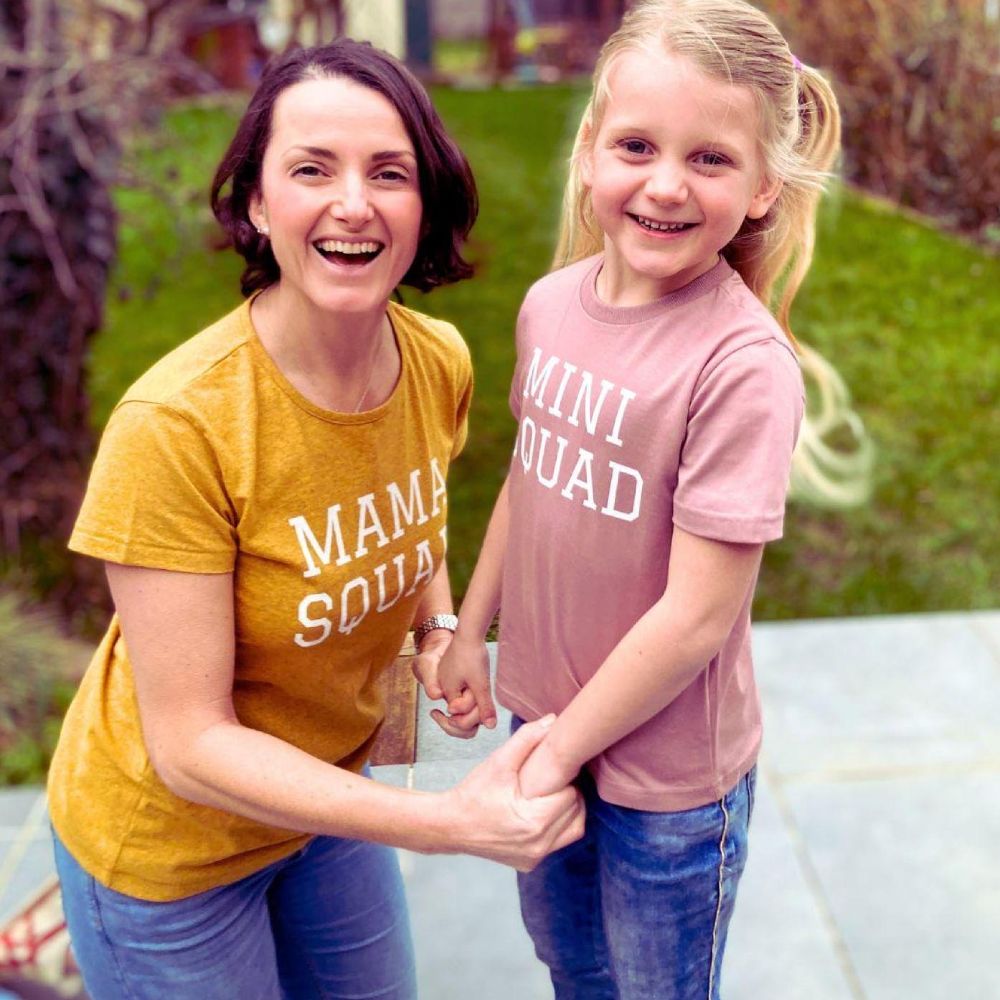
M: My Little Green Wardrobe
My Little Green Wardrobe (MLGW) is an online store that sells ethically sourced and more sustainably made kids’ clothing brands for 0-12 years, alongside a recently launched own-brand capsule collection for women and children made from recycled organic cotton (pictured above).
The idea is to make it simple for eco-conscious parents to shop more ethically for their children. MLGW also enables customers to shop according to the values that matter to them most by allowing them to filter multiple clothing brands according to certain criteria such as people, planet, vegan and locally made. MLGW thoroughly vets each label using its own assessment process, which includes questions on environmental, social and welfare practices, and assigns values to each brand (and even individual items) according to which criteria garments meet. This results in each product on the site being given a variety of icons that display at a glance how the item is produced more ethically. All brands sold on the site also carry sustainability certifications, with the majority being certified to GOTS, which is considered the most stringent organic certification globally.
In addition to the products it sells, MLGW runs on renewable energy, plants a tree for every purchase, and uses recycled and compostable packaging. Even the thank you cards sent out with each purchase are printed on seed paper to encourage children and their grown-ups to plant flowers and help increase local biodiversity.
N: The Nest
The Nest is a unique retail service that specialises in supporting conscious maternity, baby and children’s brands, retailers and manufacturers, helping clients to grow their businesses using its Conscious and Profitable Business Roadmap. The Nest is passionate about sharing its knowledge and expertise to help clients make a positive impact on the environment whilst also achieving commercial success, and offers a 360-degree service that supports start-ups as well as all sizes of conscious businesses that are striving for growth. Clients receive support in three ways: via 1-2-1 mentoring programmes, where The Nest teaches clients and gives its feedback; via collaborative projects, where it works with a client, often teaching them as it goes; or via full-service projects, where it manages the end-to-end process for the client so that they can focus on other areas of their business.
The Nest’s vision is to empower childrenswear to be the forerunner of sustainability and responsible practices, cultivating a future where environmentally conscious businesses flourish. This is why its mission is to guide maternity, baby and children’s brands and retailers to grow consciously and profitably via its business roadmap and expertise. The Nest is consciously redefining retail for our children’s futures and truly believes “the products that we are making and selling today, are for the children who will inherit the legacy that we will leave on our planet.”
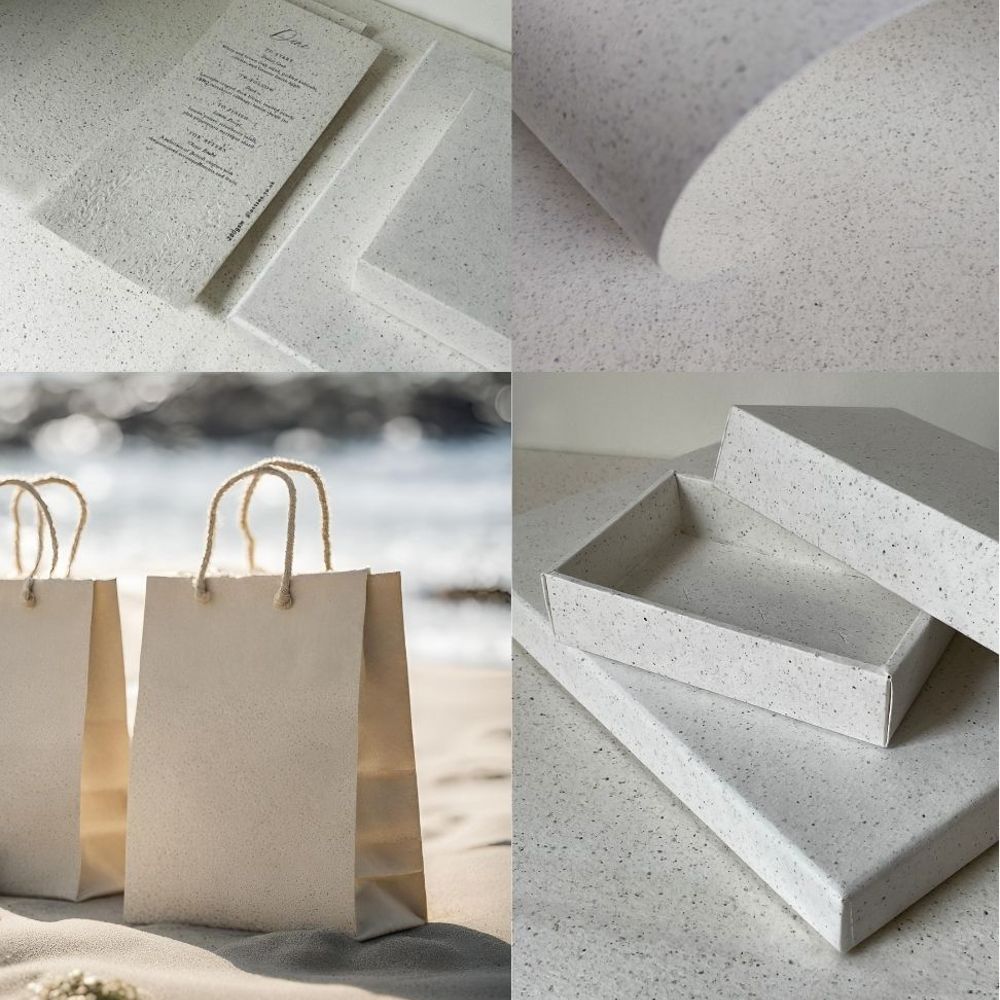
O: OPRL
A start-up business based in Wales is the first company to use the OPRL ‘Recycle’ label for seaweed-based packaging. PlantSea’s packaging comes in a range of weights and can be used to replace paper and card to make boxes, bags and stationery. Manufactured from seaweed-derived fibres blended with recycled and virgin paper fibres, it has been tested under the CEPI v2 protocol and shown to be suitable for recycling through a standard paper mill.
Alice Harlock, Director of Technical and Member Services at OPRL, says: “It is always exciting to see innovation and the successful application of novel materials in packaging. As businesses look to adapt or replace current packaging types to meet sustainability goals or legislation, OPRL is keen to support them with labelling that helps consumers make the right choices around recycling.”
The seaweed used in PlantSea’s packaging is a by-product sourced from the growing UK aquaculture industry which, in turn, supports aquatic life and marine conservation. In addition to the paper and card that has been awarded the OPRL label, PlantSea has developed other seaweed-based products, including water-soluble film.
P: Polyester
Launched globally in February, CELYS™ is a new fully certified compostable polyester that biodegrades through Industrial composting within 179 days. Certified by BPI, DIN and The Seeding Logo as a fully compostable fibre, the aim is to revolutionise the global textile industry and create a future where high-tech innovation, sustainability and fashion converge. However, this is just the beginning; the next step is a textile-to-textile recycling technology and further degradation and compostability tests into domestic, soil and marine composting.
Q: Questions
When it comes to a brand’s sustainability credentials, knowing the right questions to ask is key. Sally Dear, founder of Ducky Zebra, a UK brand of fun, sustainable clothes for babies and children that are free from gender stereotypes, made from GOTS organic cotton, and include clever features like roll-down cuffs to give extra length as the child grows, shares some tips.
“At trade shows, I often get asked what fabric we use for Ducky Zebra, where the clothes are made, and how they’re shipped. While these are great questions, they only scratch the surface when it comes to a brand’s sustainability. A brand that is committed might not be perfect – sustainability is a journey rather than a destination – but it will be passionate about reducing its impact and have a clear roadmap for making future improvements. The following questions will allow you to get a deeper understanding of a brand’s commitment to sustainability.
Where are the different elements of your garments made? Clothes might be made in one country, but the thread, fabric and fixtures might be sourced elsewhere. Cotton clothes made in the UK, for instance, will require the thread or fabric to be imported. Ask where the different elements of the garment are made and what they’re made from to better understand a brand’s traceability and carbon footprint.
What dyes and printing techniques do you use? There are many different printing techniques, from discharge and sublimation printing to digital and screen printing. Some techniques are better for the environment than others. Discharge printing uses chemicals such as chlorine to remove the dye from a coloured fabric, leaving behind the design. While this approach isn’t eco-friendly, it does result in a soft, durable finish. In contrast, screen printing allows brands to use water-based or solvent-free inks, which are injected onto the fabric. While this is more environmentally friendly, it does have limitations, including the number and vibrancy of the colours you can use. By asking a brand about its printing techniques and dyes, you will better understand how it’s created its prints and colours, and the rationale behind the decisions. Look out for certifications such as the Global Organic Textile Standard (GOTS), which certifies dyes and other textile chemicals based on strict environmental and social criteria. Other certifications include Oeko-Tex Standard 100 and Bluesign.
How do you ensure your clothes are made to last? The second-hand childrenswear market is a good one. According to Mintel, 91% of consumers agree it’s important to pass on good quality childrenswear to others. By ensuring clothes have longevity, we reduce the risk of them ending up in landfill. By asking more about the durability of a brand’s clothes, you can better understand what it’s doing to ensure a garment has been made to last and pass on.
What areas are you focusing on to improve your sustainability? Asking a brand what it’s focusing on to improve its sustainability will allow you to better understand its roadmap and commitment to reducing its impact. You can always ask follow-up questions about the goals and targets the brand is working towards to gain a deeper understanding.
What else do you do as a brand to reduce your impact and support sustainability? While this is a rather open-ended question, it allows a brand to shout about all of the other amazing things it’s doing. From its choice of energy provider and packaging to the work it’s doing within its local community. It might open up conversations around waste management, circularity, rental initiatives and take-back schemes. It will also allow you to better understand whether sustainability is a part of a company’s wider values and ethos or an add-on.
There are lots of other questions to ask, but these provide a starting point and can open up some interesting conversations.”
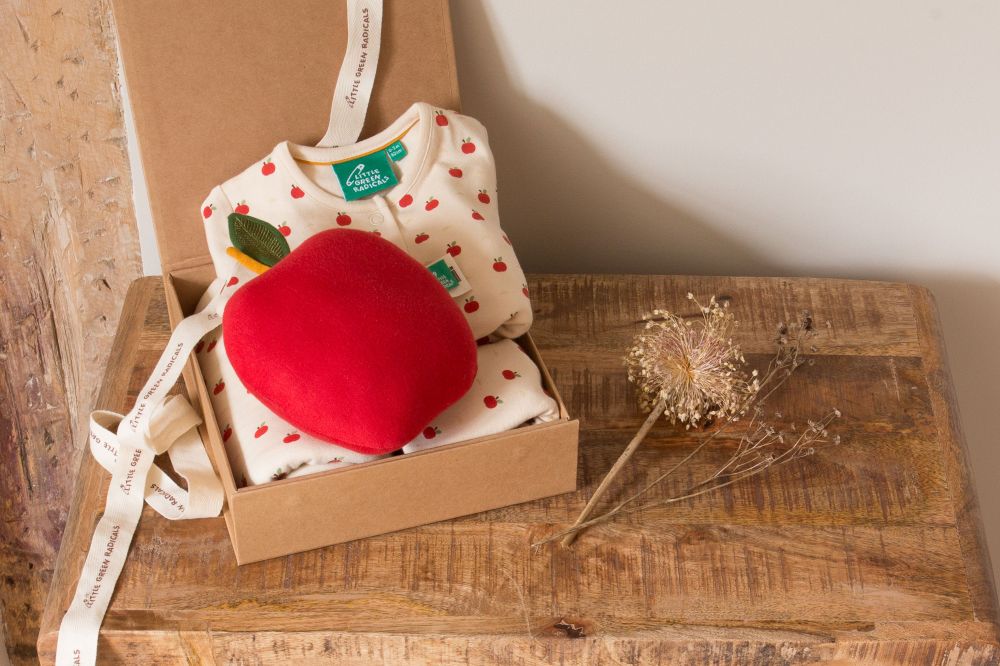
R: Reduce, reuse, recycle
Little Green Radicals makes comfortable, colourful clothes and accessories for babies and kids using organic Fairtrade cotton and recycled fabrics. Its soft toy collection is designed to reduce waste by reusing and upcycling leftover fabrics. To make the toys’ soft filling, small pieces of cotton left as a by-product when fabric is cut are reused and shredded to create a fluffy stuffing. Wherever possible, the outer of the toys is made from leftover fabric offcuts that would otherwise have gone to waste. Usually, soft toys are made from petroleum plastics like polyester. However, these cuddly friends are 100% non-toxic organic cotton coloured from water-based GOTS-approved dyes, so they can be safely chewed, cuddled and cherished.
Little Green Radicals also produces high-performance waterproof outerwear made from recycled materials, including new anorak and windbreaker styles for its current s/s 24 collection, and recycled polyester fleeces coming in for a/w 24.
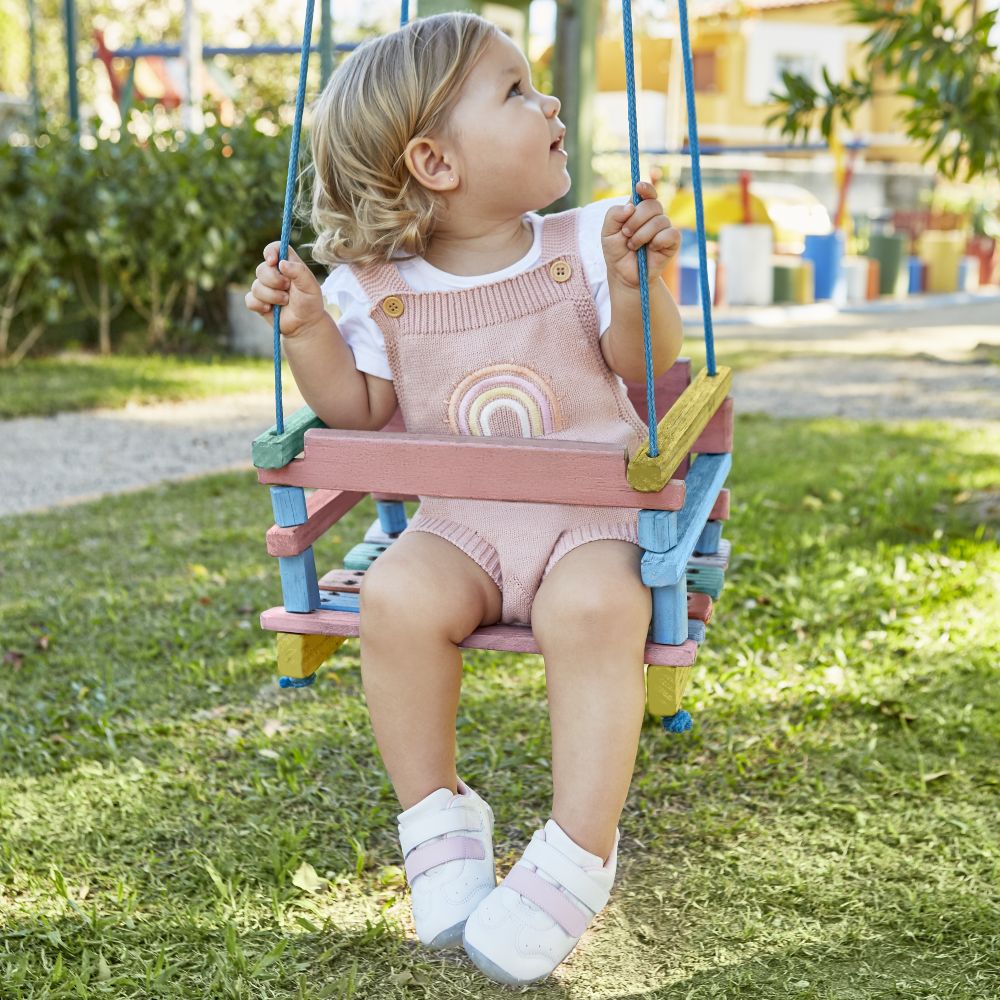
S: Stellar Blue + Bibi
Stellar Blue is a brand that represents a steadfast commitment to the health and well-being of children, and to ensuring they have a healthy world to grow up in and cherish, like we did when we were kids. Stellar Blue’s exclusive partnership with Brazil’s leading brand of children’s footwear, Bibi, allows it to deliver on its vision by offering an extensive range of incredibly comfortable, non-toxic, and super-stylish footwear that is scientifically proven to be like walking barefoot – promoting natural growth and development. This gives peace of mind to parents who are looking to make smart choices for their children and the environment. Bibi is Brazil’s leading brand of children’s footwear, with a 70-year heritage of quality and innovation. In addition to offering products specifically designed for children’s health and well-being, it prioritises a sustainable production chain and fair business and commercial practices. Bibi is the first children’s footwear brand to be certified with the Diamond Sustainable Origin (Origem Sustentável) seal, the highest level of certification for Brazilian companies that integrate sustainable practices into their production process. One hundred per cent of the electricity Bibi consumes comes from certified renewable sources, such as wind and solar, and 100% of its materials are reused or recycled. Further, from a social responsibility standpoint, Bibi nurtures the health and well-being of its employees with benefits such as an extensive health plan, 50% cover of daycare fees, and a 10% Profit-Share scheme. Click here to learn more about Stellar Blue and Bibi.
T: Tern Eco
Retail is changing. Customers have become more price-sensitive and more aware of the environmental impact of their purchasing decisions, resulting in the rise of resale and repair. Within the children’s market, two-thirds of parents already shop second-hand at least some of the time. It’s the fastest-growing sector of retail, shaping a new competitor landscape and creating significant opportunities for brands to acquire new customers and build loyalty.
Circular retail models, such as trade-in, resale and repairs, give retailers the ability to meet both business objectives and sustainability goals. The Tern ‘plug & play’ circular retail service is designed specifically for retailers to tap into these fast-growing markets and the value they bring. The white label customer experience lives within a brand’s own website and solves a genuine problem for parents, making it easy to trade-in products they no longer want or need in exchange for store credit. Offering trade-in and buy-back programmes gives customers greater confidence when making their first purchase, and trade-in credit gives them more reason to make their next purchase, whilst resale and repair services unlock new revenue streams.
Working with Tern, brands have full control over their circular retail programmes with flexible software that includes rules-based pricing, integrated logistics and data-rich analytics. The Tern Trade-In App is now available on Shopify and is used by award-winning children’s brands throughout the UK. Click here for further information.
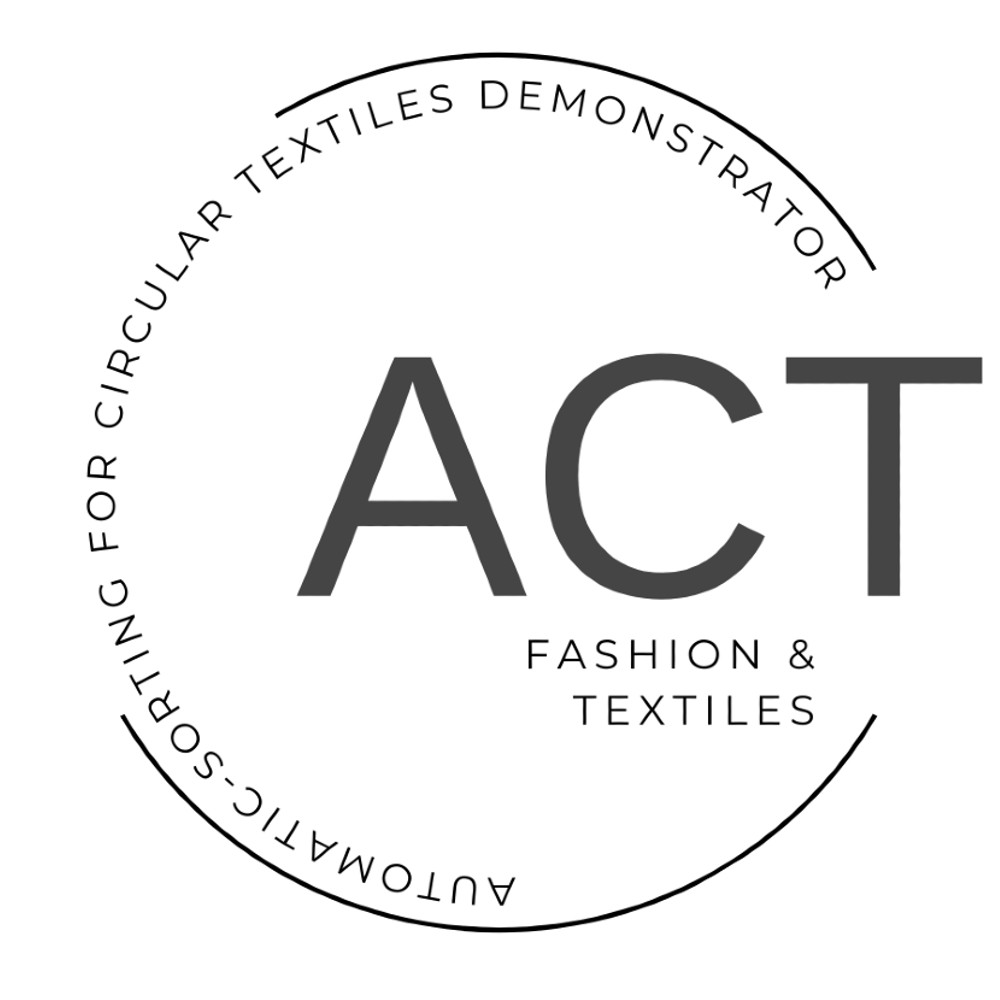
U: UKFT
ACT UK is a two-year project aiming to establish the blueprint for an innovative Advanced Textile Sorting and Pre-processing facility (ATSP), supported by funding from Innovate UK and led by UK Fashion and Textile Association (UKFT). The ATSP will take in non-rewearable textiles and deliver this as feedstock for fibre-to-fibre recyclers, preparing the UK market for the transition to textiles circularity.
The project brings together a consortium of recycling technologies, textile collectors/sorters, academia, manufacturers, industry associations, technologists and brands/retailers, including Circle-8 Textile Ecosystems, WRAP, Re-skinned, Alex Begg, Camira, IBM, M&S, Manufacturing Technology Centre, New Look, Oxfam, Salvation Army Trading Company, Shred Station, Tesco, Textile Recycling Association, Textile Recycling International, University of Huddersfield, University of Leeds and Worn Again. ACT UK is part of a broader Circular Fashion Programme supported by UK Research and Innovation (UKRI).
The project aims to: create a world class state-of-the-art blueprint for an ATSP by 2025, integrating the latest technologies; provide the economic incentivisation of regional material recycling over export of NRT in lower cost labour regions or to landfill/incineration; leverage the consortium roles, knowledge and innovation to drive the transition from linear to circular textiles in the UK, and cement the UK’s global leadership in innovation and textiles circularity, creating new markets, jobs and foreign direct investment opportunities.
ACT UK focuses on three key project areas: post-consumer textiles collection and logistics, state-of-the-art technology development, and the circular textiles ecosystem. Collection trials of textile waste are currently underway with Tesco and the Salvation Army Trading Company, and M&S and Oxfam.
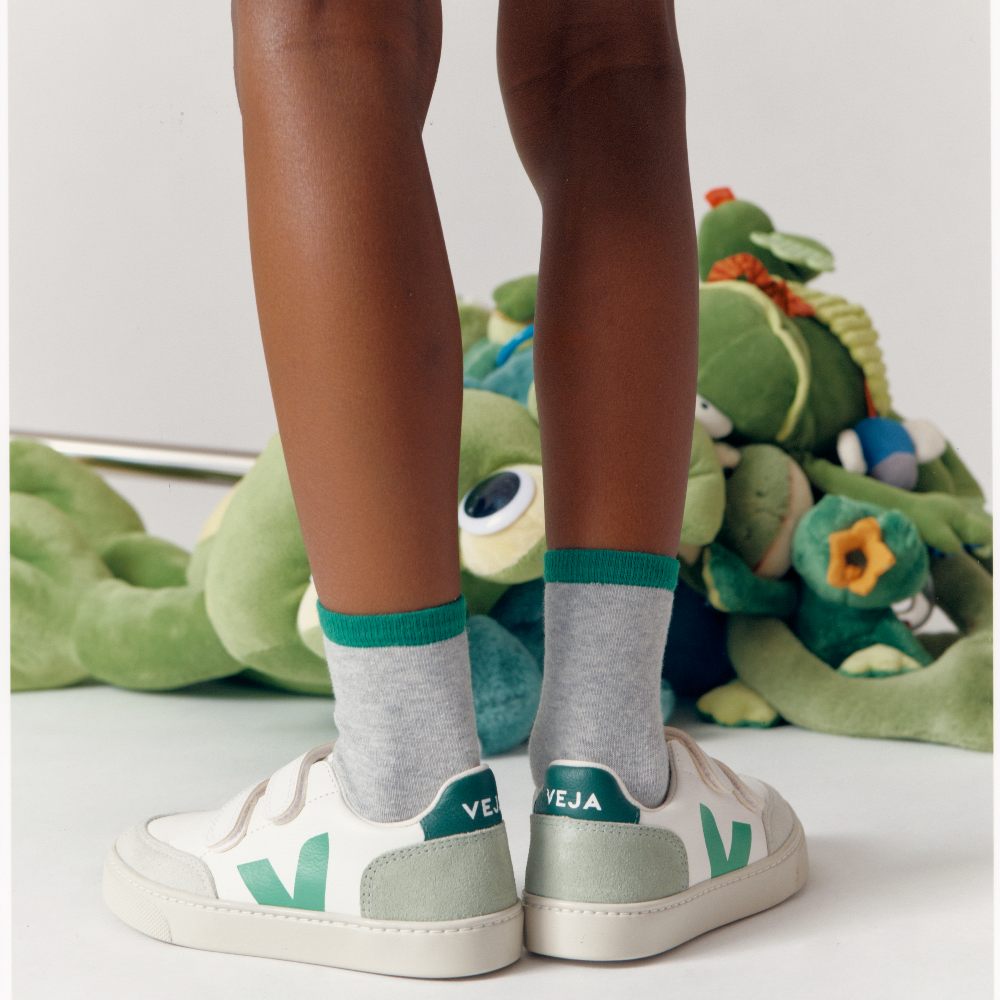
V: VEJA
Since 2005, VEJA has been creating trainers differently, mixing social projects, economic justice and ecological materials. VEJA sources Brazilian and Peruvian organic and agroecological cotton for canvas and laces, Amazonian rubber for soles, and innovative materials made from recycled polyester, with production taking place in high-standard factories in Brazil.
Inspired by adult styles, most of the VEJA Kids trainers have been created with a sewn and reinforced sole, with all soles containing Amazonian rubber, sugar cane and organic cotton. Available with laces or straps, VEJA Kids leather styles are exclusively tanned using no chrome, heavy metals or dangerous acids.
In 2020, VEJA launched a new project in Darwin, Bordeaux: a space dedicated to cleaning, repairing and collecting old pairs of shoes from VEJA and other brands. A second VEJA cobbler station opened in July 2021 in Galeries Lafayette, Paris, where the brand’s cobblers repair trainers from VEJA and other brands, as well as all other types of shoes. To date, approximately 19,421 pairs have been repaired. Collection boxes have also been installed for shoes that cannot be repaired, allowing VEJA to continue testing its recycling programme.
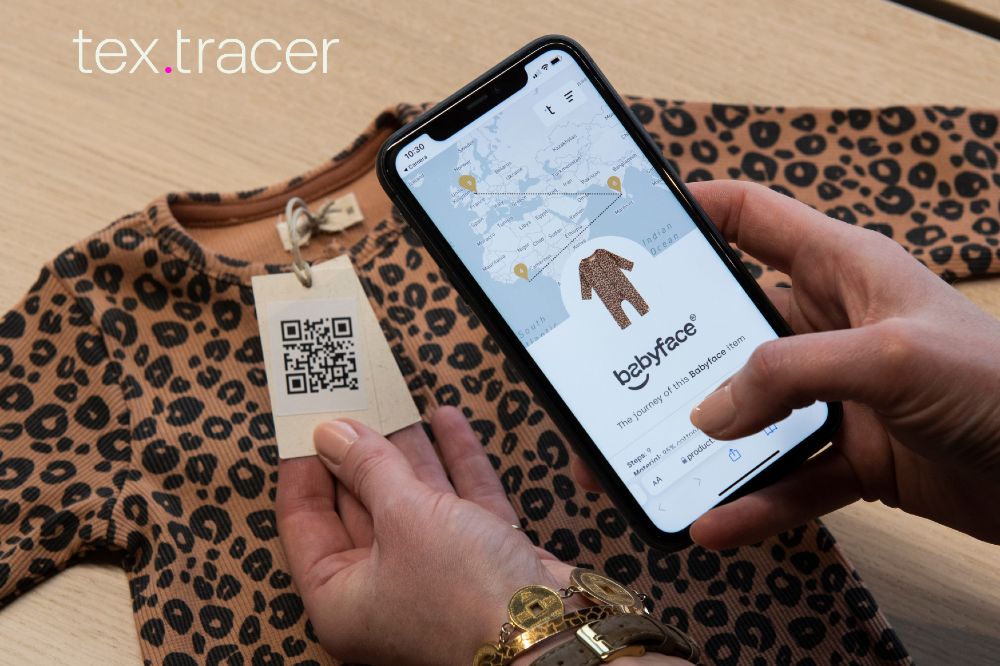
W: Working on transparency
Tex.tracer is the transparency platform that empowers companies, consumers and other stakeholders to act based on the truth. The platform collects product and supply chain data from primary source by connecting with supply chain partners and verifies this data using time- and geolocation stamps, peer-to-peer reviews and blockchain technology. This data empowers brands and retailers to improve their product and supply chain on environmental and social levels and share this information externally via a Digital Product Passport with verified product journey and footprint information.
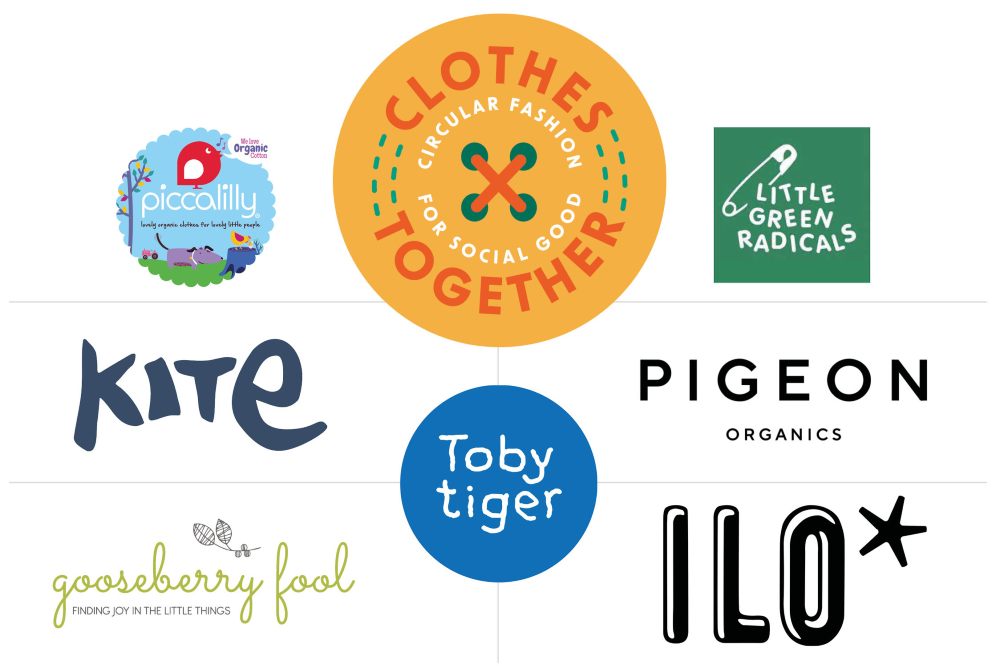
X: Collaboration
According to the Joseph Rowntree Foundation, 27% of children in the UK live in poverty. While fashion brands are under increasing pressure to demonstrate greater sustainability, Clothes Together is showing how brands can collaborate and work together to donate spare stock to families in real need. Clothes Together offers childrenswear brands a simple way to reduce waste while making a real difference.
There are many excellent frontline charities able to channel clothing professionally and efficiently to families in desperate need. For example, The Cowshed Charity and Little Village HQ receive regular requests from health visitors, social services, food banks, schools, refuges and churches. With the help of 150 volunteers, The Cowshed supported 5,500 individuals with clothing last year. Little Village HQ, a network of baby banks working across London, takes referrals from over 2,300 professionals and supported over 7,560 children last year. Both aim to provide genuine choices to families who have few real clothing choices available to them.
Most brands have some redundant stock. While some might be nervous about donating stock to charities, Jane Shepherd, founder of Pigeon Organics and a co-founder of Clothes Together, says: “We are really delighted if families in need receive our high-quality clothing that they might not otherwise have access to. We believe this is part of our positive brand identity.”
Providing clothing and essential items to those in crisis does not solve all their needs but gives them one less thing to worry about. A mother who fled domestic violence and received clothing and bedding support from The Cowshed, says: “I just can’t describe the joy and relief it has brought to me as a mother struggling to provide for my children. Being able to dress my children in some clothes that fit them and make them a warm bed to sleep in has made me sob with relief. I just want to say thank you.”
Not only does Clothes Together help the environment, but it also supports families in real need. Any brand with spare stock that would like to find out more should contact Jane Shepherd at info@pigeonorganics.com.
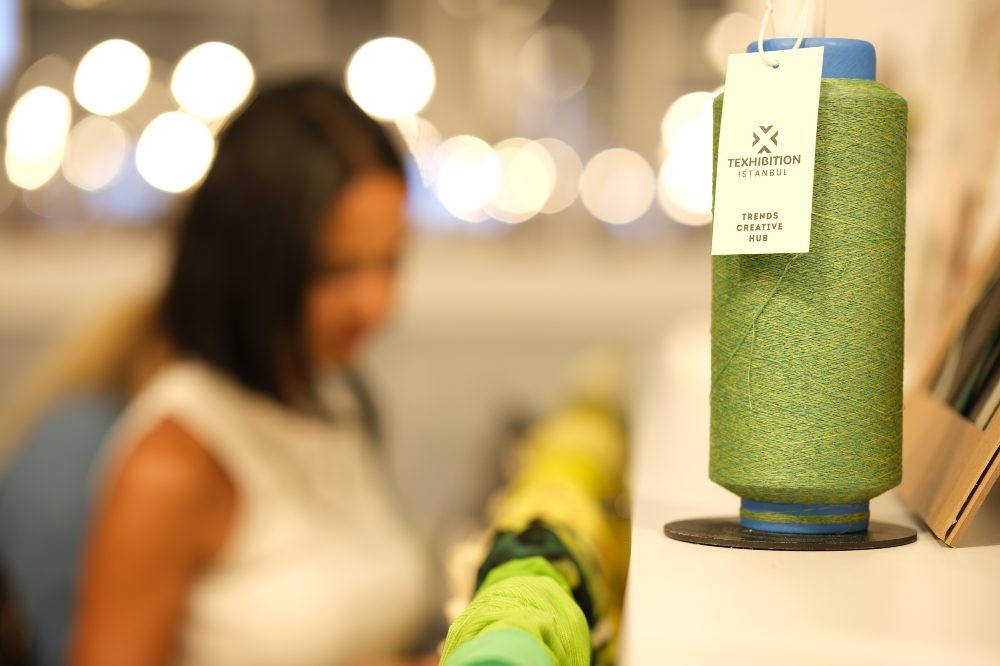
Y: Yarn
Texhibition Istanbul is a trade fair covering yarn, fabric and textile accessories. The show’s fifth edition in March saw a new separate hall for yarns and denim and offered more than double the floor space compared to the last event. Playing host to 557 exhibitors and attracting 25,752 visitors from over 112 countries, the show presented the entire range of the textile supplying section alongside an extensive seminar and workshop programme covering topics such as organic and sustainable products, technological and digital approaches, denim future, and climate-independent designs. The fair’s Innovation Hub, meanwhile, included a showcase of the latest developments in the world of organic, sustainable, recycled and ecological fabrics. Texhibition will return on 11-13 September 2024.
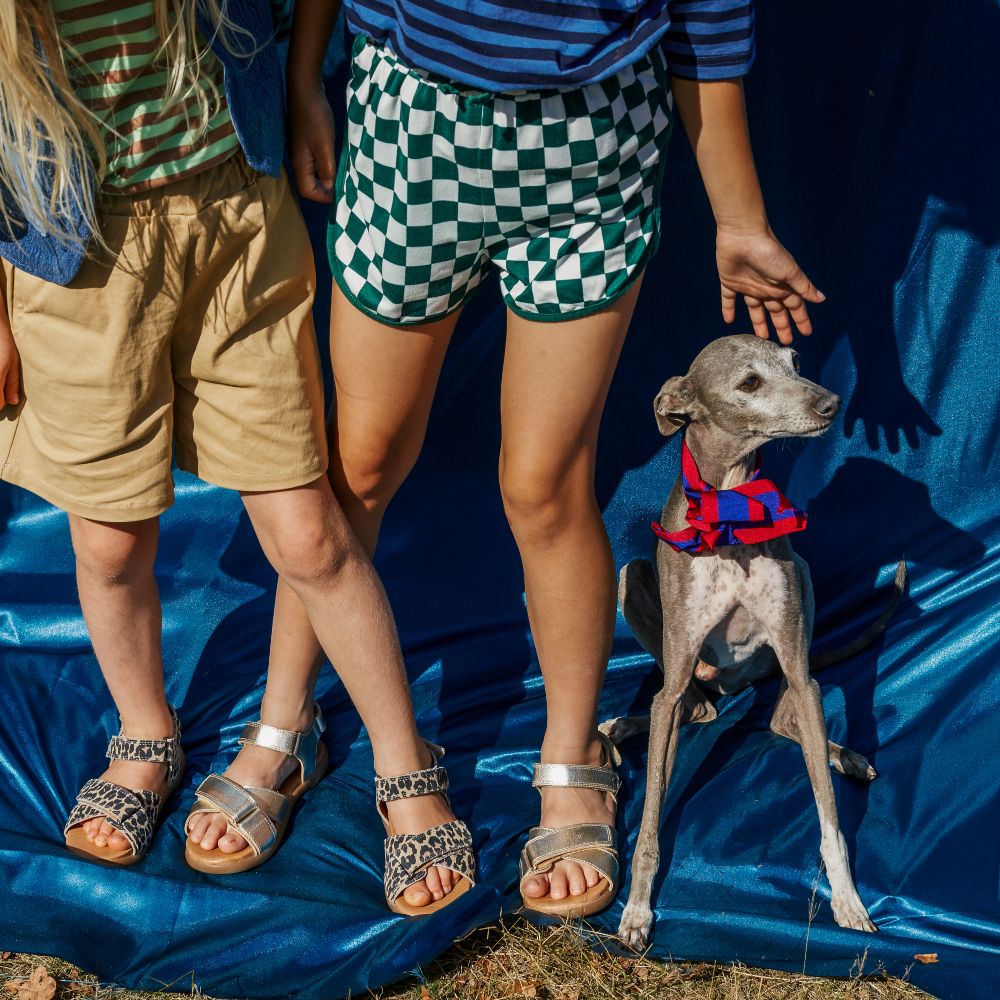
Z: Zig+Star
Zig+Star is the first children’s footwear brand using sustainable design to create shoes that grow while incentivising circular practises to reduce waste. After 20 years working in fashion footwear, becoming more disillusioned with the growing dominance of fast fashion and overconsumption, Ali McAleavy decided to find her own way of tackling the waste crisis. As a mother of three, she was very aware of the waste that came with children growing. In particular, children’s shoes are a problem category when it comes to waste, often outgrown before they’re outworn and difficult to hand down. Due to a lack of recycling options available, worn-out shoes are left languishing at the bottom of wardrobes before ending, most likely, in landfill.
Zig+Star is the answer to these problems, using a sustainable Good-To-Grow design to create products that grow and adapt to a child’s growing feet. Natural materials are selected for both biodegradability, durability and child’s foot health, and all the shoes are approved by paediatric podiatrists. The brand’s trade-in scheme encourages further life extension by incentivising customers to return their old shoes free of charge, which Zig+Star then donates to its partner charity Sal’s Shoes. If the shoes are no longer wearable, Zig+Star will recycle them free of charge and give the customer discounts on future orders. Zig+Star has multiple awards for both sustainability and design, including winning Best Circularity Initiative (<£10m turnover company) in the Drapers Sustainable Fashion Awards 2024. This year will see it launch a new sustainable trainer category as well as a British Made Sheepskin collection, alongside its current ranges of sandals, boots and school shoes.







